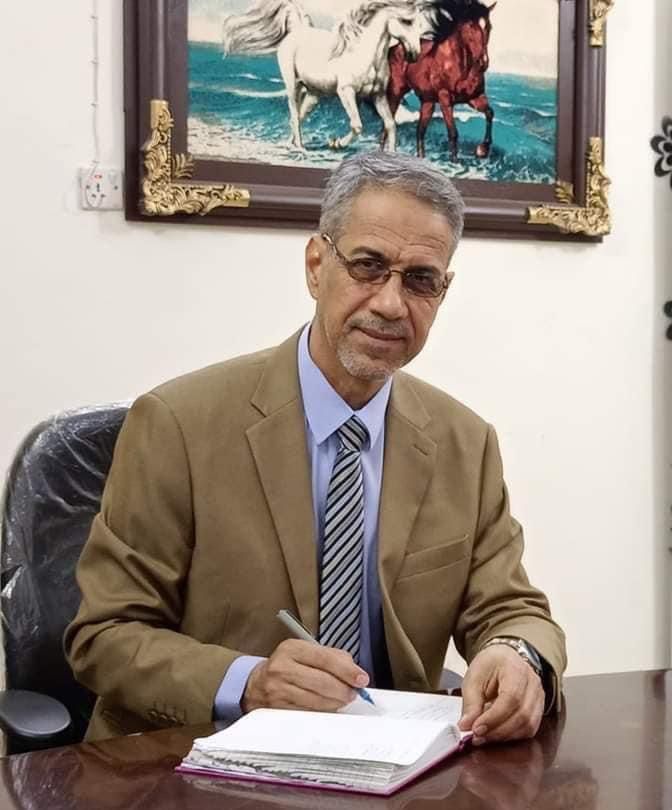الشيعة مو مال حكم..!
بقلم/ علي جبار
منذ عام 2003، دخل العراق في مرحلة سياسية معقدة، شهدت تحولات كبرى في بنيته السياسية والاجتماعية. وبينما كان الهدف المعلن هو بناء دولة ديمقراطية حديثة تقوم على أسس العدالة والمساواة، جاءت المحاصصة الطائفية والعرقية لتضع العراقيل أمام هذا الهدف، وتُنتج نظامًا سياسيًا هشًا وغير قادر على تلبية تطلعات الشعب.
خطورة الخطاب المغرض
في خضم الإخفاقات المتكررة لإدارة الدولة العراقية، بدأت بعض الخطابات المغرضة بالترويج لفكرة أن “الشيعة مو مال حكم”، محاولةً خلق انطباع مضلل ومشوش لدى الرأي العام. هذا النوع من الخطاب يفتقر إلى الموضوعية، ويتجاهل عمدًا أن المرحلة ما بعد 2003 لم تكن حكراً على طرف سياسي أو طائفي واحد، بل كانت نتاج شراكة بين مختلف القوى السياسية (سنية, شيعية, كردية وغيرها) التي تبنّت جميعها نهج المحاصصة.
هذا الخطاب لا يكتفي بتوجيه أصابع الاتهام إلى طائفة معينة، بل يعمل على تعميق الانقسامات بين مكونات الشعب العراقي، في وقت يحتاج فيه البلد إلى خطاب يوحّد الصفوف ويعالج الأزمات المتراكمة بعيدًا عن التمييز الطائفي أو العرقي.
المشكلة الحقيقية: المحاصصة وليس الطائفة
إن المشكلة الجوهرية التي تُثقل كاهل العراق ليست في انتماء طائفي أو مذهبي بحد ذاته، بل في نظام المحاصصة الذي اعتمدته القوى السياسية كافة. هذا النظام القائم على توزيع المناصب على أساس الولاءات الحزبية والطائفية بدلاً من الكفاءة والمهنية، كان السبب الرئيسي وراء:
1. سوء الإدارة: غياب الكفاءات القادرة على إدارة مؤسسات الدولة بشكل فعال.
2. انتشار الفساد: تحويل المناصب إلى أدوات لتحقيق المصالح الشخصية والفئوية.
3. انهيار البنية التحتية: تراجع مستوى الخدمات الأساسية نتيجة الإهمال والفساد.
4. تفاقم الأزمات الاقتصادية والاجتماعية: نتيجة غياب التخطيط السليم والاعتماد على سياسات ارتجالية.
الجميع مسؤول عن الفشل
إن تحميل طرف واحد مسؤولية الفشل هو تبسيط مخلّ للحقيقة. جميع القوى السياسية، سواء كانت شيعية، سنية، كردية أو غيرها، شاركت في إدارة الدولة بعد 2003 وساهمت بشكل أو بآخر في تكريس النهج الخاطئ. الأحزاب الشيعية، على سبيل المثال، لم تكن استثناءً؛ فهي، كغيرها من الأحزاب، أخفقت في تقديم شخصيات كفوءة ومهنية قادرة على تحقيق إصلاح حقيقي. وبدلًا من ذلك، انخرطت في صراعات داخلية وتنافس على المناصب.
إصلاح المسار ضرورة وطنية
إن الوضع الراهن لا يحتمل المزيد من التسويف أو الإصرار على نفس النهج الفاشل. العراق بحاجة إلى تغيير جذري في طبيعة إدارة الدولة، من خلال:
1. التخلي عن المحاصصة: جعل الكفاءة والنزاهة المعيارين الأساسيين في اختيار القيادات.
2. محاسبة الفاسدين: تفعيل دور القضاء والمؤسسات الرقابية لملاحقة الفساد.
3. تعزيز الوحدة الوطنية: رفض الخطابات الطائفية والتركيز على بناء هوية وطنية جامعة.
4. تبني رؤية استراتيجية: وضع خطط طويلة الأمد لتحقيق التنمية المستدامة.
إعادة صياغة المفاهيم
إن العبارة المغرضة “الشيعة مو مال حكم” لا تعكس الواقع، بل تُستخدم كأداة لتوجيه الرأي العام بعيدًا عن المشكلة الحقيقية. العبارة الأدق والأكثر تعبيرًا عن الواقع هي: “أحزاب المحاصصة مو مال حكم”، لأنها تكشف جذور الأزمة المتمثلة في النظام السياسي القائم، وليس في انتماء طائفي أو عرقي.
ختامًا
إن استمرار هذا النهج القائم على المحاصصة سيؤدي حتمًا إلى مزيد من التراجع على جميع المستويات. القوى السياسية مطالبة اليوم، أكثر من أي وقت مضى، باتخاذ خطوات جريئة نحو الإصلاح الحقيقي. العراق يحتاج إلى قادة يمتلكون رؤية وطنية واضحة، بعيدًا عن الطائفية والمصالح الضيقة، لتحقيق تطلعات شعبه في بناء دولة قوية وعادلة. إن التغيير ليس خيارًا، بل ضرورة وجودية لضمان مستقبل أفضل للأجيال القادمة.
“Shiites Are Not Fit to Rule”
Since 2003, Iraq has entered a
complex political phase marked by significant transformations in its political and social structures. While the declared goal was to build a modern democratic state based on justice and equality, sectarian and ethnic quotas have obstructed this goal, producing a fragile political system incapable of meeting the aspirations of the people.
The Danger of Misleading Narratives
Amid repeated failures in managing the Iraqi state, some misleading narratives have emerged, promoting the idea that “Shiites are not fit to rule.” This rhetoric attempts to create a distorted and confusing impression among the public. Such discourse lacks objectivity and deliberately ignores the fact that the post-2003 phase was not exclusive to any one political or sectarian group but was the result of a partnership among various political forces (Sunni, Shiite, Kurdish, and others) that collectively adopted the quota-based system.
This narrative not only directs blame at a specific group but also deepens divisions among Iraq’s diverse communities at a time when the country urgently needs a unifying discourse to address its accumulated crises without resorting to sectarian or ethnic discrimination.
The Real Problem: Quotas, Not Sectarianism
The core issue weighing on Iraq is not sectarian or religious affiliation per se but the quota system adopted by all political forces. This system, which allocates positions based on party and sectarian loyalties rather than competence and professionalism, has been the primary cause of:
1. Poor Governance: The absence of qualified individuals capable of effectively managing state institutions.
2. Widespread Corruption: Transforming positions into tools for personal and factional gain.
3. Infrastructure Collapse: The deterioration of basic services due to neglect and corruption.
4. Exacerbation of Economic and Social Crises: The lack of sound planning and reliance on improvised policies.
Collective Responsibility for Failure
Assigning blame to one party alone oversimplifies the reality. All political forces, whether Shiite, Sunni, Kurdish, or others, participated in the post-2003 state administration and contributed to the perpetuation of flawed practices. Shiite parties, for example, were no exception; like other parties, they failed to present competent and professional figures capable of implementing genuine reforms. Instead, they became entangled in internal conflicts and competition for positions.
Reform as a National Necessity
The current situation can no longer tolerate procrastination or adherence to the same failed approach. Iraq urgently needs a fundamental transformation in governance through:
1. Abandoning the Quota System: Making competence and integrity the primary criteria for selecting leaders.
2. Holding Corrupt Individuals Accountable: Empowering the judiciary and oversight institutions to combat corruption.
3. Strengthening National Unity: Rejecting sectarian rhetoric and focusing on building a unified national identity.
4. Adopting a Strategic Vision: Developing long-term plans to achieve sustainable development.
Reframing the Narrative
The misleading phrase “Shiites are not fit to rule” does not reflect reality but serves as a tool to divert public opinion from the real issue. The more accurate and representative phrase is: “Quota-Based Parties Are Not Fit to Rule,” as it highlights the root of the crisis, which lies in the existing political system, not in any sectarian or ethnic affiliation.
Conclusion
Continuing with the quota-based system will inevitably lead to further decline on all fronts. Political forces are now, more than ever, required to take bold steps toward genuine reform. Iraq needs leaders with a clear national vision, free from sectarianism and narrow interests, to meet the aspirations of its people and build a strong and just state. Change is not a choice but an existential necessity to secure a better future for future generations.




